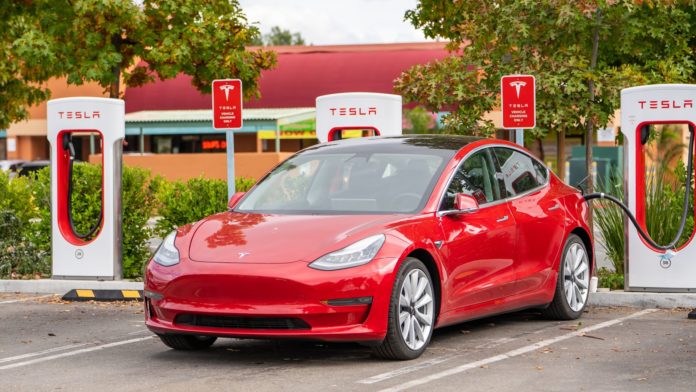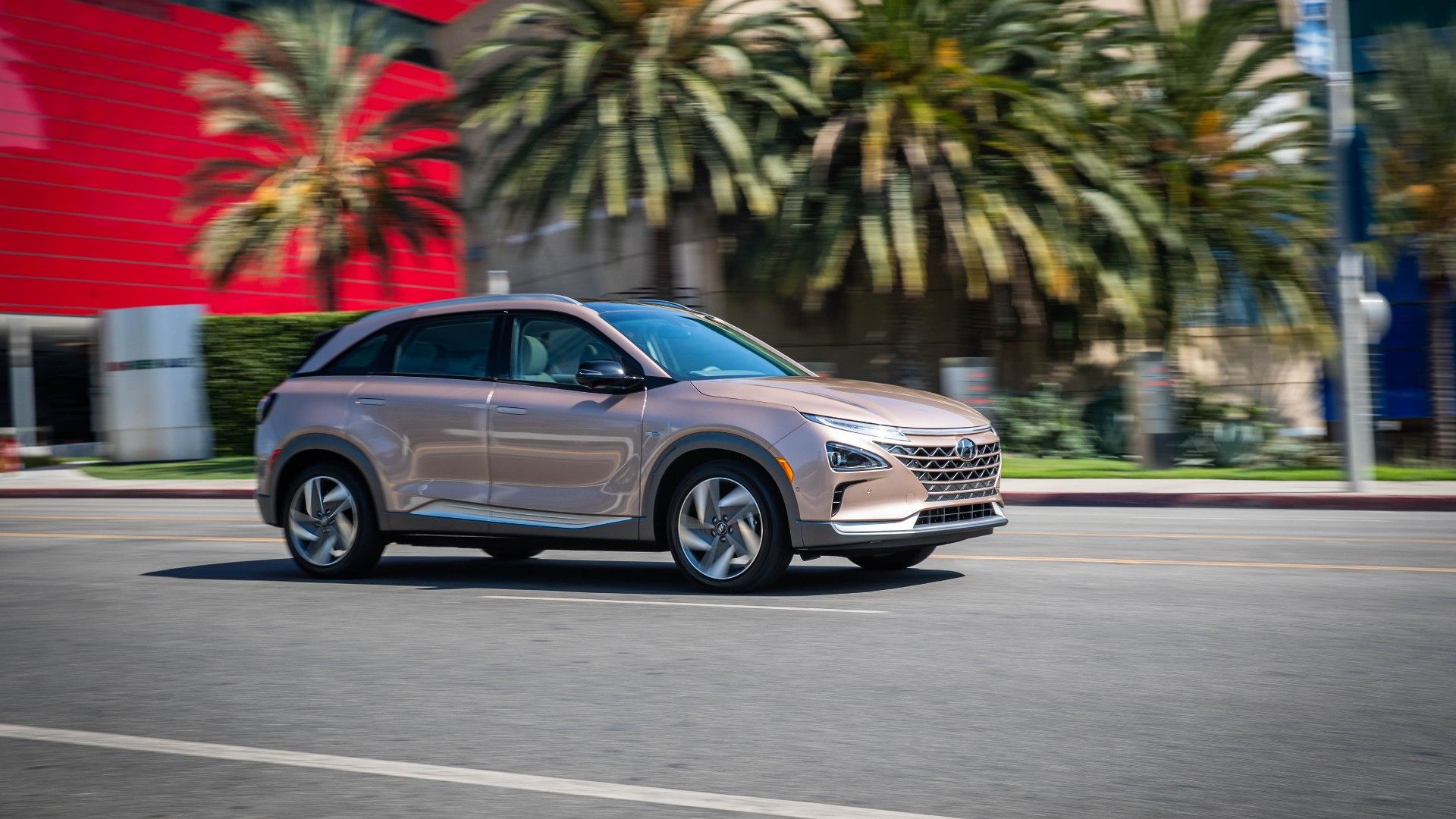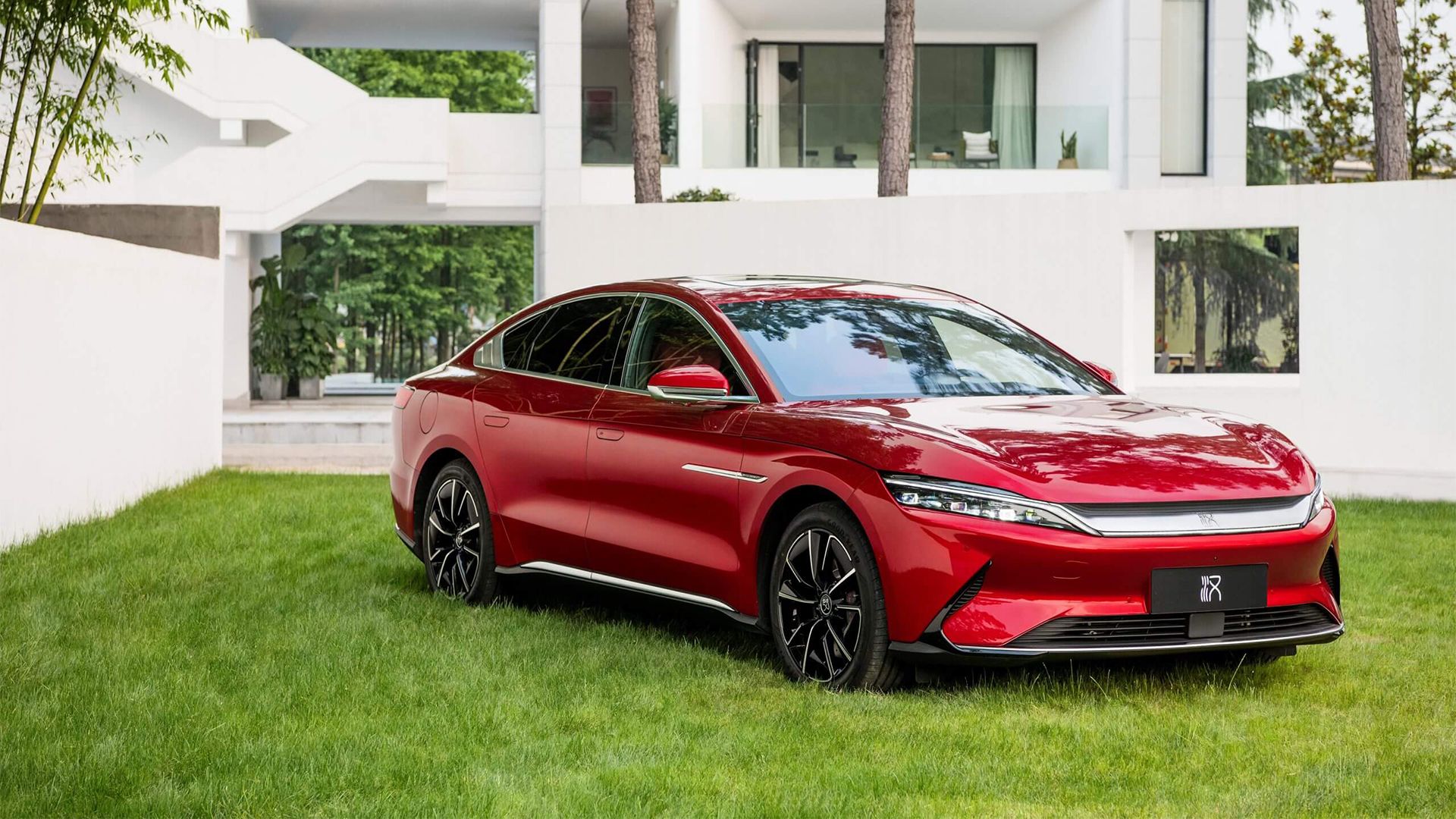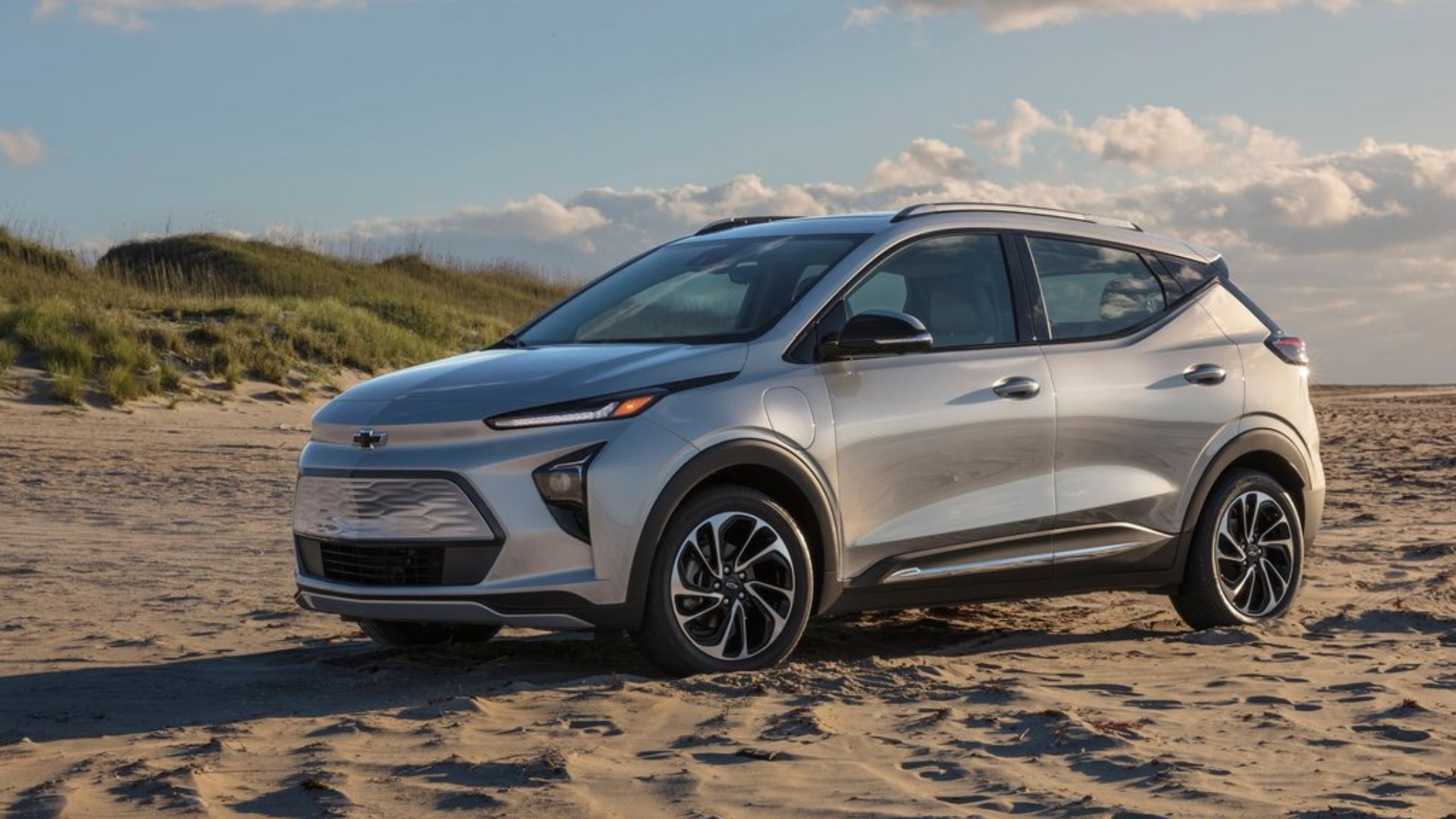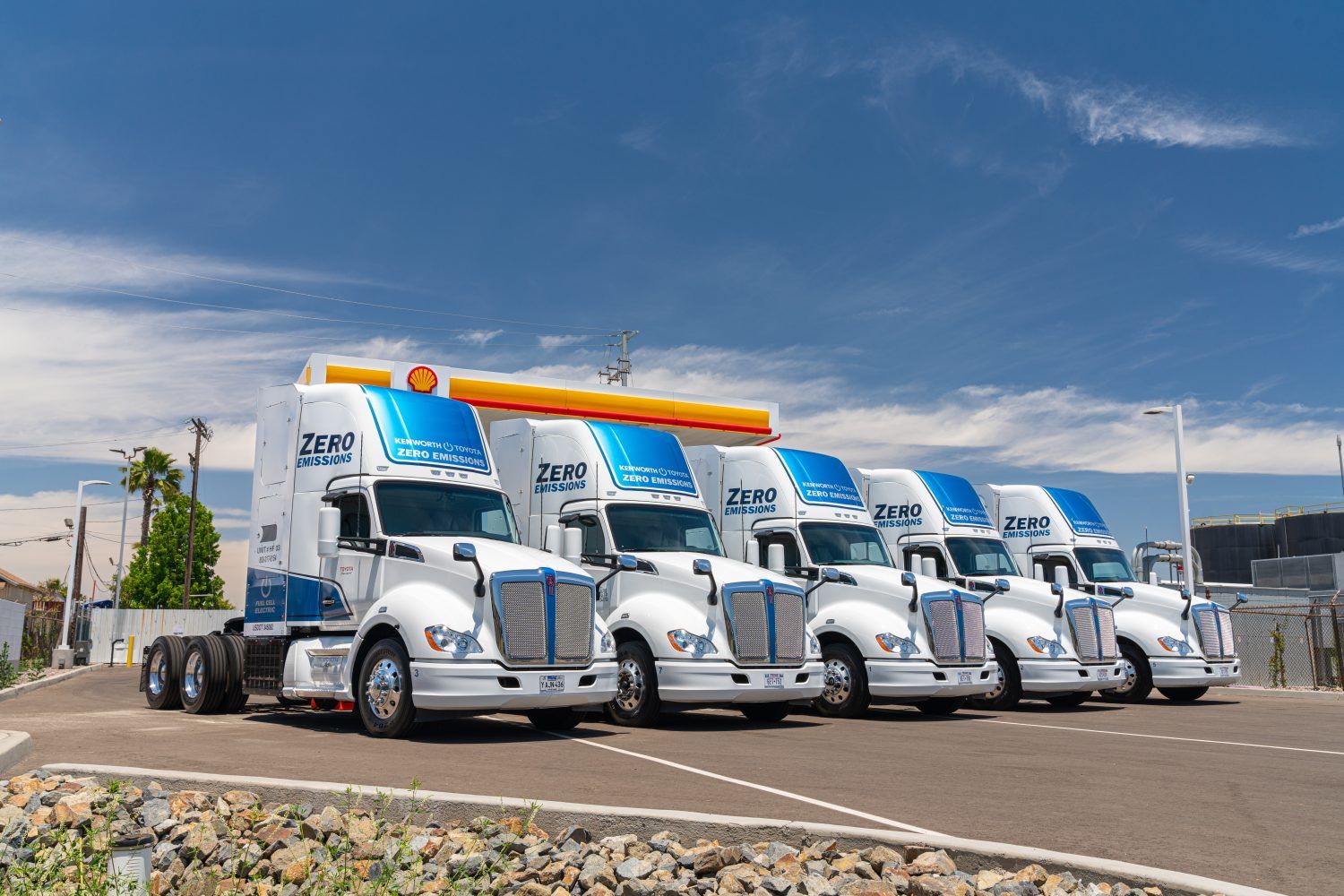The electric motor is superseding the internal combustion engine, though we are still a long way away from the day when a V-8 seems as charmingly old-fashioned as a horse. Currently, batteries and hydrogen fuel cells are vying to be the power sources for the engine-free future. From the driver’s perspective, the only difference between the two is whether you take your car to a hydrogen station for refueling or plug the car in overnight. Aside from refueling/recharging the car, the driving experience is the same. Battery electric vehicles have already gained mainstream acceptance, while hydrogen cars remain, to put it euphemistically, an offbeat option. At present, the biggest obstacle for hydrogen cars is the fact that you can’t top up your fuel tank unless you live in one of the very few cities that have hydrogen fueling stations. It’s true that the first people to purchase gasoline cars had similar fuel limitations. But even if hydrogen pumps appeared at every gas station, battery-powered cars are still better.
Electricity Is Cheaper Than Hydrogen
A side shot of a 2023 Hyundai NEXO with a copper metallic exterior.
It’s true that the universe has more hydrogen than any other element on the periodic table. However, here on Earth, free-floating pure hydrogen gas is very rare. The hydrogen atoms have to be broken out of other molecules before they’re ready to pump into a Toyota Mirai. Whether hydrogen is derived from natural gas (which is most of it), from water, or from any other source, producing pure hydrogen gas requires a lot of energy. The cost of all the energy gets passed down to every driver who pumps hydrogen into their car.
Battery electric vehicles don’t have this extra cost per mile. Once electricity is generated, it’s ready to go directly into a car’s battery. It doesn’t have to go through further refineries before it’s ready to charge up a car. It’s true that electricity passes through multiple transformers on its route from the power plant to the charging socket, but those don’t consume enormous amounts of the energy routed through them the way hydrogen refineries and electrolysis plants do. For this reason, the cost per mile to drive a battery electric car will always be cheaper than hydrogen. Unless the global resource market does some very wild tipping, the electricity bill to charge a car will be far cheaper than the cost to purchase enough hydrogen to drive the same distance. Perhaps in a tacit acknowledgment of this, Toyota includes a card for three years of free hydrogen with every leased Mirai. This allows customers time to hopefully like the car before facing the realities of fueling it.
Electric Cars Demand Less Energy Than Hydrogen Cars
A front three-quarter shot of the BYD Han
At present, most hydrogen produced from natural gas by a process called steam-reforming or steam-methane reforming. This involves using steam that’s been heated to from 700-1000°C to cause a chemical reaction that yields hydrogen gas (and other byproducts). If the hydrogen in a car is derived from natural gas, the car still needs fossil fuels to run. But whether one thinks fossil fuels are a concern or not, this is an energy-intense method of producing hydrogen gas.
Other processes have been proposed that would allow for hydrogen to be produced in other ways. The most commonly touted one is water electrolysis, in which electricity is passed through water. This causes the hydrogen to break free of the water molecules, turning them into separated hydrogen and oxygen. While it’s true that water isn’t a fossil fuel like natural gas is, hydrogen electrolysis requires a lot of electricity. While a hydrogen car certainly seems greener than a gasoline one, it would be greener still to skip the complicated business of using electricity to make hydrogen to pump into a car to turn back into electricity using the car’s fuel cells. Instead, why not simply send the electricity directly into the car without using hydrogen gas?
Batteries Are Better With Wildly Varying Loads
Side profile of Chevrolet Bolt EUV parked on a beach side
Regardless of whether a car has an engine or a motor (and regardless of what fuel powers it), driving puts a constantly fluctuating demand on the car. At some points, a car only needs a gentle stream of power to maintain a cruising speed. Other times, the car needs a massive surge of power, whether it’s for coming out of a dead stop, ascending a steep hill, or swerving around someone whose carelessness almost caused a wreck. Batteries are much better at handling this constant trickle-then-surge power output. Indeed, hydrogen cars have a supplemental battery for when the motor needs an extra jolt of juice.
This is one reason hydrogen is a stronger candidate for long-haul trucking than for passenger cars. For the majority of their routes, long-distance truck drivers do not go through the constant stop-and-go driving that daily commuters do. On the long highways between cities, it’s possible to cruise at the same speed for hours at a time (barring speed traps). However, whether one lives in the city or out in the most remote countryside, one’s daily commutes and errands almost certainly do not involve putting such a steady load on one’s powertrain. While hydrogen systems can be designed for this uneven power demand, batteries can handle it naturally.
Hydrogen Will Have A Place, But It’s Not Everywhere
Trucks parked in a line with a Toyota’s Hydrogen-Powered Fuel Cells
It is true that battery-powered cars will neither magically solve the energy crisis nor end pollution. One of the biggest problems is their need for rare-earth metals to produce the batteries. It is also true that in the long term, we will inevitably need to diversify the fuels used for cars. However, no amount of perky greenwashing will make hydrogen the savior of our smog-ridden roads. While it may appear that hydrogen cars could be just as good as battery electric cars if only there were hydrogen fueling stations in every town, electric cars remain the better choice.

